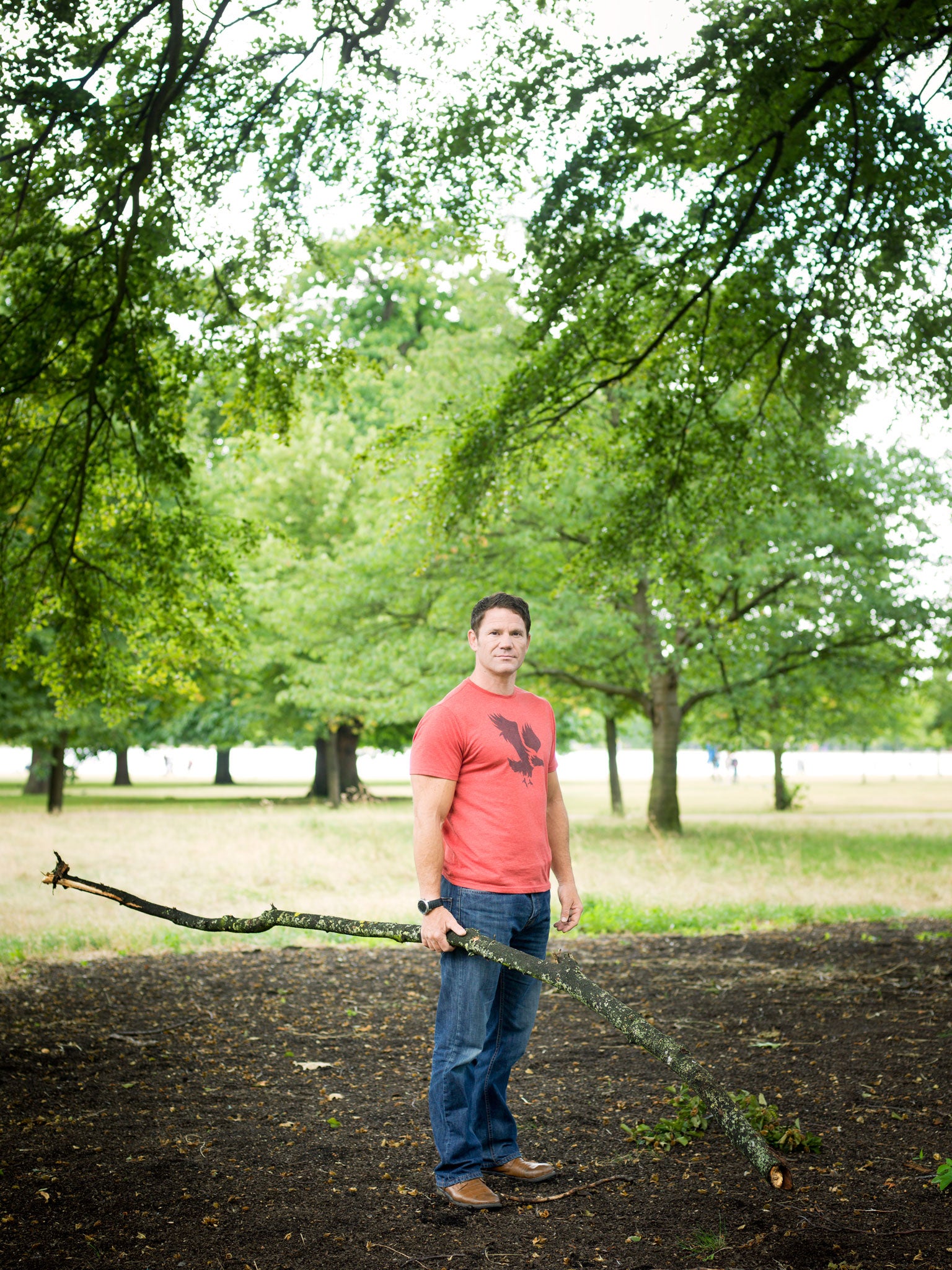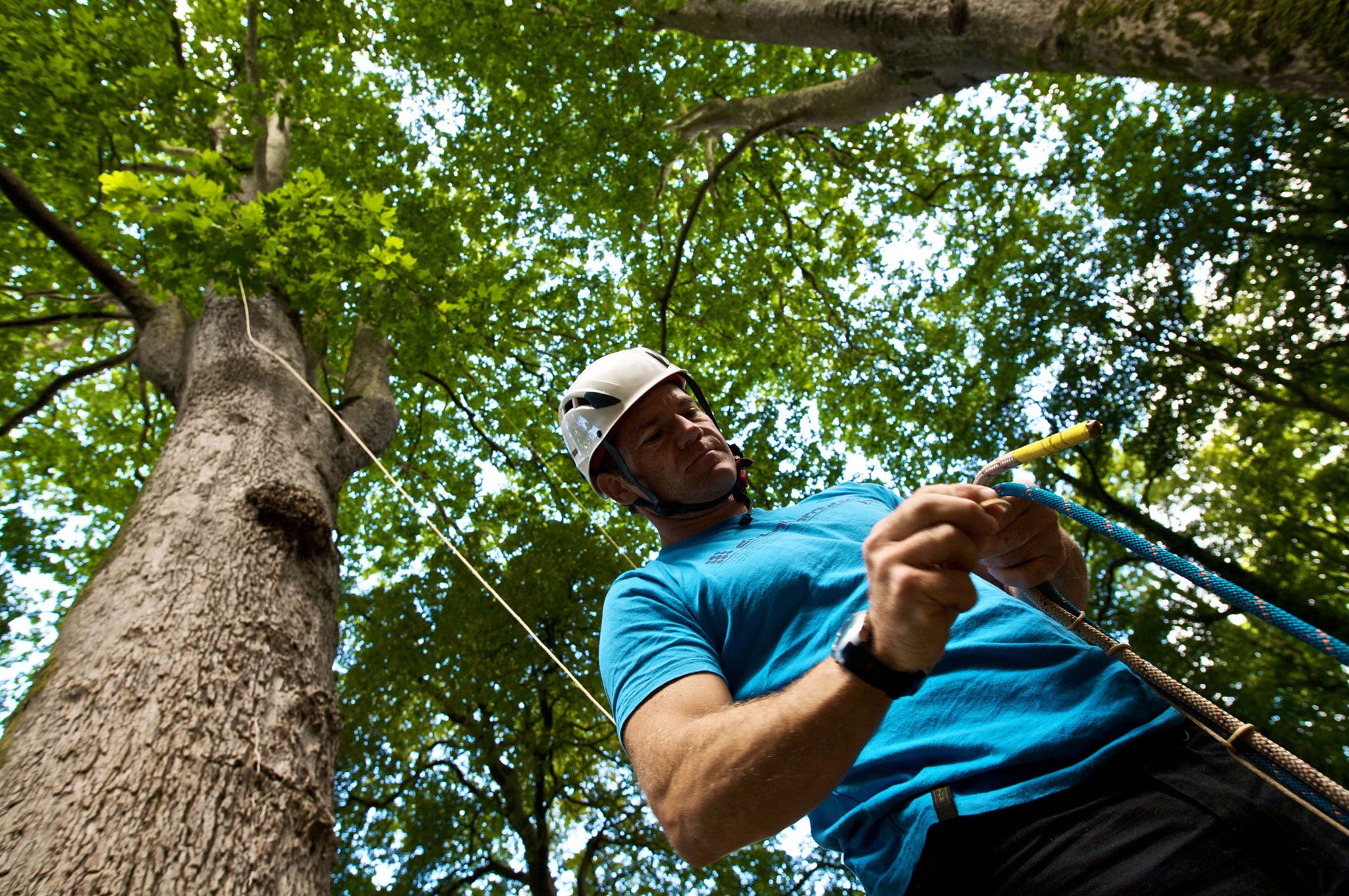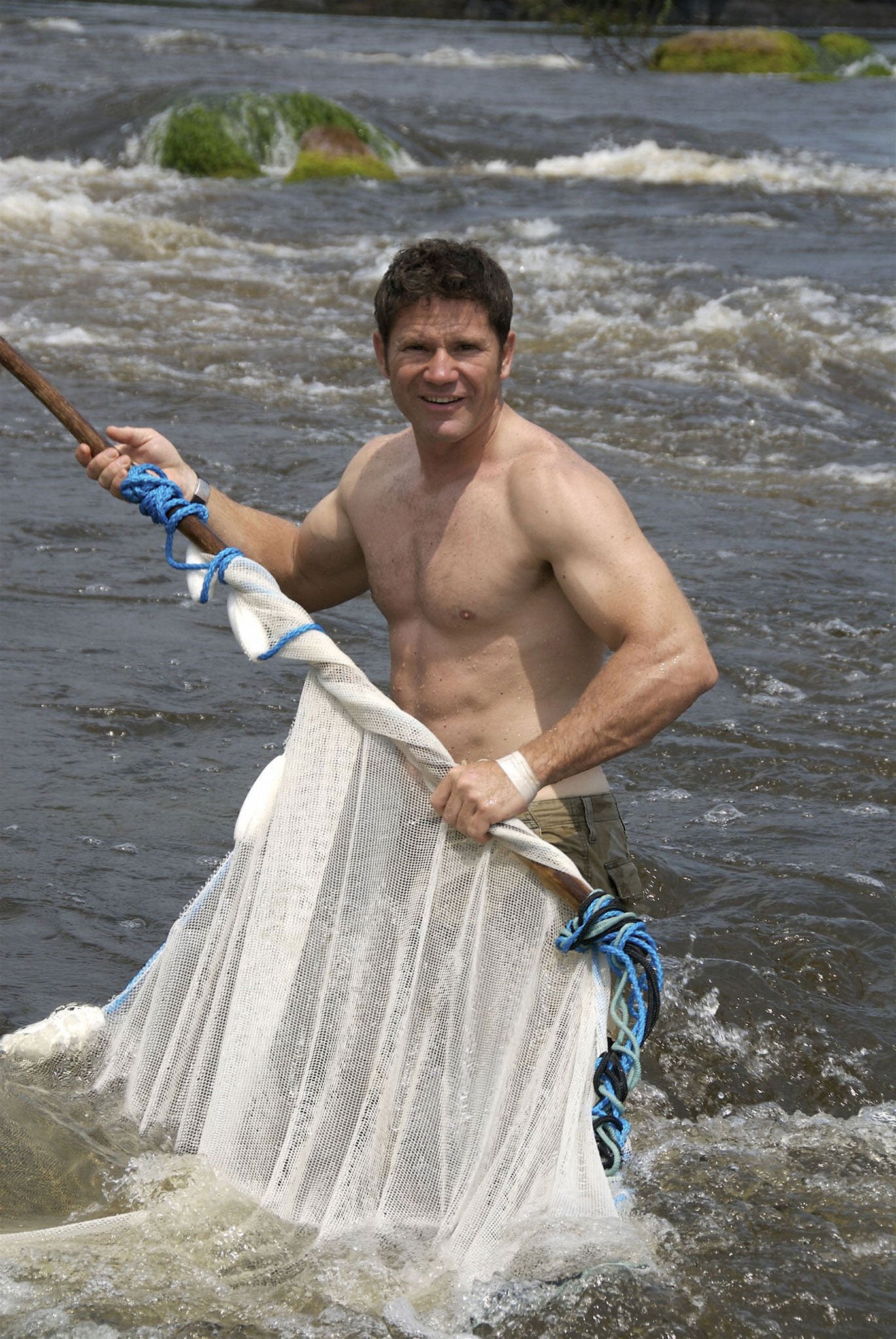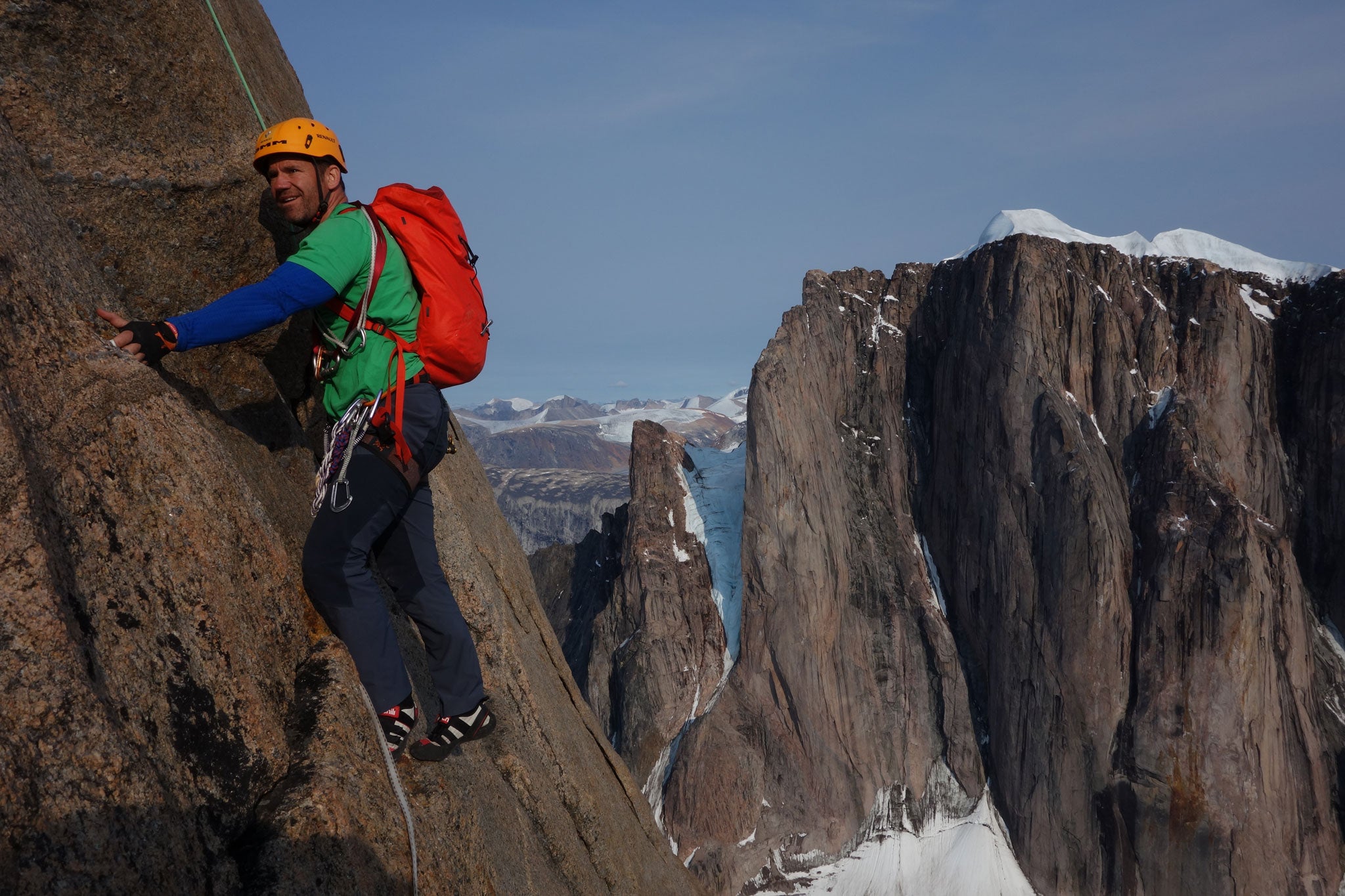TV wildlife presenter Steve Backshall is about to face his biggest fear ... Strictly Come Dancing
Steve Backshall has had a run-in with a hippo, come face to face with a giant rat and even broken his back. But, the cult kids' TV adventurer tells Lena Corner, what terrifies him is the thought of never having children – and strutting his stuff tonight on 'Strictly Come Dancing'

Your support helps us to tell the story
From reproductive rights to climate change to Big Tech, The Independent is on the ground when the story is developing. Whether it's investigating the financials of Elon Musk's pro-Trump PAC or producing our latest documentary, 'The A Word', which shines a light on the American women fighting for reproductive rights, we know how important it is to parse out the facts from the messaging.
At such a critical moment in US history, we need reporters on the ground. Your donation allows us to keep sending journalists to speak to both sides of the story.
The Independent is trusted by Americans across the entire political spectrum. And unlike many other quality news outlets, we choose not to lock Americans out of our reporting and analysis with paywalls. We believe quality journalism should be available to everyone, paid for by those who can afford it.
Your support makes all the difference.Steve Backshall is just back from the Arctic. He went with a couple of mates to Baffin Island, a remote Canadian outpost, to climb a mountain. They walked for eight days to reach base and then, in a single 27-hour push, conquered its 2km vertical granite face. It wasn't for broadcast on any of his wildlife shows. He did it entirely for fun.
The morning after his return, Backshall appeared, unshaven and a tiny bit shell-shocked, on Channel 4's Sunday Brunch. He mucked in with a couple of the Saturdays and a former Pussycat Doll and dutifully cooed over a piece of salmon. We meet two days later, when he comes straight from Matthew Wright's daytime chat show. He is wearing the same T-shirt.
"Baffin Island was extraordinary; one of the most terrifying things I've done," he says. "Then to pitch up straight after on live TV, which has an awful lot about it that seems extraneous, is a profound culture shock. I'd been in a situation where the decisions you make genuinely affect whether you live or die. After a trip like that, I'm wandering around like Crocodile Dundee, staggered at everything in what seems to be a weird and almost pointless modern world."
As frontman of the hit BBC children's show Deadly 60, Backshall tracks down the world's most dangerous animals. He's done it for seven years, and his passion for his subject and enthusiastic presenting style have endeared him to millions of children, their mums and, now, university-age kids who have grown up watching him. He's fearless without being overly macho. When, for example, he finds himself floating in a flimsy kayak above a pod of orca that is regrouping for a choregraphed kill, he doesn't paddle off pathetically, as you or I might. He sits tight, his voice rising a notch with the thrill of it all, the words tumbling out like an over-excited child. The show now airs in 137 countries worldwide.
Two weeks ago, Backshall announced that he was temporarily swapping his hiking boots for something a little daintier – as a contestant on Strictly Come Dancing, which begins tonight on BBC1. He says he has no idea if he can dance, as he has never really tried. "I am very driven by things that scare and frighten me, and things that might be tough for me," he says. "I think Strictly will definitely be that."
It will be interesting to see how he fares. Will he be able to stomach the fake tan, sequins and essential futility? If he's not voted out early on, he could be grounded in the UK well into the winter – a big commitment from a man who roamed the planet for more than 10 months last year.
Whatever happens, it will be another feat to add to his already impressive stack of achievements. Alongside Deadly and its spins-offs, he has worked on more adult-focused programmes such as the Lost Land… series, in which he explored territories where man is believed never to have set foot, and Swimming with Monsters, in which he accidentally swam headfirst into a hippo in Botswana – "One of the only occasions where I've thought I'm lucky to be alive."
He is a marathon runner, a martial-arts black belt and the author of 12 books (his third in a series of children's fiction, which he writes while waiting for planes, came out last month). Amazingly, he is also one of an elite few who can claim to have discovered previously unknown animals: he has found three new species of mammal, 12 new frogs, a couple of lizards and fish and dozens of invertebrates; and he was part of the team that found the world's largest rat in an extinct volcano in the highlands of New Guinea. "The size of a decent dog," he says. "It was remarkably confident, considering it had never seen a human being before."
It's all a far cry from Bagshot in Surrey, the "incredibly normal, almost mundane part of the English countryside" where Backshall grew up. Both his parents worked for British Airways at nearby Heathrow – his dad as an aircraft dispatcher and his mum at check-in. It wasn't the privileged background so many adventurers seem to have, but his parents were blessed with wanderlust and a generous BA travel allowance.

"My mum and dad are extraordinary," he says. "They decided that what they were going to with their life is have a big adventure. With staff discounts it meant we could holiday in India for considerably less than it would cost to stay in Cornwall. So they took my younger sister and me all over the world. From around when I was five we would go on walking safaris in Zimbabwe or mountain-trekking in Latin America. We would pitch up and live like proper travellers."
Backshall caught the bug. Straight after graduating, following a stint in Indonesia writing travel books for Rough Guide, he went to Colombia, "to the most wild, rugged and potentially dangerous jungle I could find". Alone and armed with a small camera, he shot a short pilot of himself wandering around the undergrowth, seeking out dangerous animals.
"I brought it back and hawked it around. The head of the National Geographic Channel called me in, and we had probably the most remarkable hour of my life. This very senior guy said, 'You've got it. I want you on our channel. Here's my credit card, go and buy yourself some proper video equipment.' And I walked out of his office with his credit card in my hand just thinking, this is a joke, this is a big wind-up."

Riddled with self-doubt, it has only been recently that Backshall has felt he can hold up his head in the scientific circles in which he now mixes. "In the early days, I felt looked down upon, no doubt about it," he says. "On my first expeditions, I'd be surrounded by professors of herpetology from the Smithsonian and a professor of entomology from Oxford, and who am I? I'm nobody. Of course I felt ill at ease. How could you not? I am second-rate. I am lesser than many of my contemporaries. There is a reason why we have universities and qualifications – it shows that you've done the work. People say to me, you need to be less hard on yourself, you need to be more accepting of the things you have done. I don't believe that. I think that if I'm going to be on TV telling people the science about animals, I should be a respected, qualified scientist."
Having studied English and theatre at Exeter, where "it became very clear that whatever I was going to do in life it wasn't going to be in theatre", Backshall decided to go back to square one. He did a foundation course, a biology degree, and is now studying for a Masters in herpetology – the zoology of amphibians and reptiles – at Falmouth. His research paper will be on the descriptively titled Iberian sharp-ribbed newt, which is said to be able to push its own ribs through its skin in response to an attack . Backshall heard about it on his travels, but little has been written on it.
Yet his second bout of education has been a struggle: "Doing all that studying alongside k a crazy, full-on, full-time job is hardcore. I do wish I'd gone down the biology route the first time." Though it has also helped him. "I've become more comfortable in my skin," he says. "On one expedition, I had to tell the herpetologist what the animals were and what they did; he didn't have a clue. That gave me heart."

However, he still feels conflicted about the price his career has had on his personal life. Last year he had one precious day off to attend a good friend's wedding, but failed to get there when his plane was grounded by the weather in the Arctic. Now 41, with a career based on his brilliant connection with children, he has none of his own.
"I'd love to have kids," he says. "I come from a very close family and they're everything to me. I always figured I'd have had kids in my twenties, but it just hasn't happened. I like to think one of the reasons is that I'm away so much and I've thrown myself into my career. But I'm a biologist and I think breeding is one of our primary purposes for being on the planet. I dread being 60 and thinking, well, I've had some extraordinary adventures but I've missed out on the most important thing. I still hope it's going to happen."
Backshall certainly doesn't lack for adoring female fans – usually mums who caught sight of him as their children watched his shows. A quick look on Mumsnet reveals long, eye-watering threads discussing him, in particular his shirtless body, in unrepeatable ways. Wisely, he does not log on. Perhaps his foray on to the dance floors of Strictly will change things for him.
"If I met Miss Right tomorrow, I would cut my overseas travel time in half and spend more time at home having a normal life," he says. "It has been a huge sacrifice. I'm not complaining for a second, but the reality is, I've spent 20 years of my life away from family and friends."

It says a lot about Backshall that the first thing he did on returning from Baffin Island, before he had even popped home to drop his bag, was go to his sister's house to visit her and her new baby son. It's a softer, more human side than we get from our other on-screen adventurers. We've seen more than enough machismo in the late crocodile-hunter Steve Irwin, say, or the heroics of Bear Grylls. And although Backshall has had his fair share of near misses – shark bites, rampaging elephants – that's never the point. Even so, he is very protective of his contemporaries.
"People are very, very down on Bear Grylls," he says. "He gets a bad press, but look at what he's achieved in terms of making the outdoors cool for young people. It's impossible to quantify the value his work has had. And, likewise, people are so snobbish about Steve Irwin. He was looked on as a pariah, but he did more to encourage interest in reptiles than anybody. Of course I didn't like him twirling snakes round his head but that is a million times better than what is what is going on in America at the moment."
By this, Backshall means the backlash against conservation that's going on in the United States, and, horrifyingly to many, an upsurge in wildlife programmes where the focus isn't on protection or research but on hunting and killing. "The programme with the highest ratings on Discovery at the moment is about people going out and hunting bears," he says. "You can gain a tremendous amount of excitement from demonising animals. It gets bums on seats. Steve Irwin's sensational style is the least of our worries."

Five years ago, Backshall almost followed Irwin, who in 2006 was killed by a stingray while filming on the Great Barrier Reef. Backshall fell 30ft on to rock while climbing in South Wales. He broke his back in two places and smashed his left ankle to a pulp. "Totally my fault. I was climbing too soon after it had rained. My equipment failed and I hit the deck." Doctors said the accident should have left him unable to walk, but 12 operations later, he defied them all. He shows me a photo of the 35kg rucksack he carried to Baffin – too heavy to pick up or put on unaided.
"The whole trip was really cathartic," he says. "It was a statement that I am back and I'm mentally and physically on top of things. It's been a big thing. I perceive my life as pre-accident and post-accident. It had an impact on everything. But I feel as if I'm finally getting over it."
With that, he gets up and steps outside to continue his long, extraordinary journey.
'A Wild Audience with… Steve Backshall' is at the Lyric Theatre, London W1, on 8 and 15 December. 'Deadly on a Mission: Pole to Pole' airs on BBC1 on Sundays at 6.05pm
Five more who walk on the wild side
By Claudia Pritchard
Kate Humble
When she's not fighting off the heat of the New South Wales fire or mucking out on her farm in Monmouth, the presenter of Lambing Live gets arguably the world's snuggliest co-stars.
Monty Halls
Super high-tech gear coupled with the marine biologist's sharky know-how turn his Great Barrier Reef explorations into powerful arguments for urgent conservation.
Charlotte Uhlenbroek
Raised in Ghana and Kathmandu, the zoologist's work with Jane Goodall made her the perfect fit for Chimpanzee Diary. Defender of all primates, she also flits to butterflies.
Simon King
Rumbling around the Masai Mara, the Big Cat Diary presenter combines excitement with scholarly calm. Let's face it, cheek by jowl with cheetahs is where most of us would like to be.
Maya Plass
The more tentacles they have, the better. BBC Coast's marine scientist – a self-confessed modern mermaid – likes the underwater oddities with whom she comes face to face on the seabed.
Join our commenting forum
Join thought-provoking conversations, follow other Independent readers and see their replies
Comments